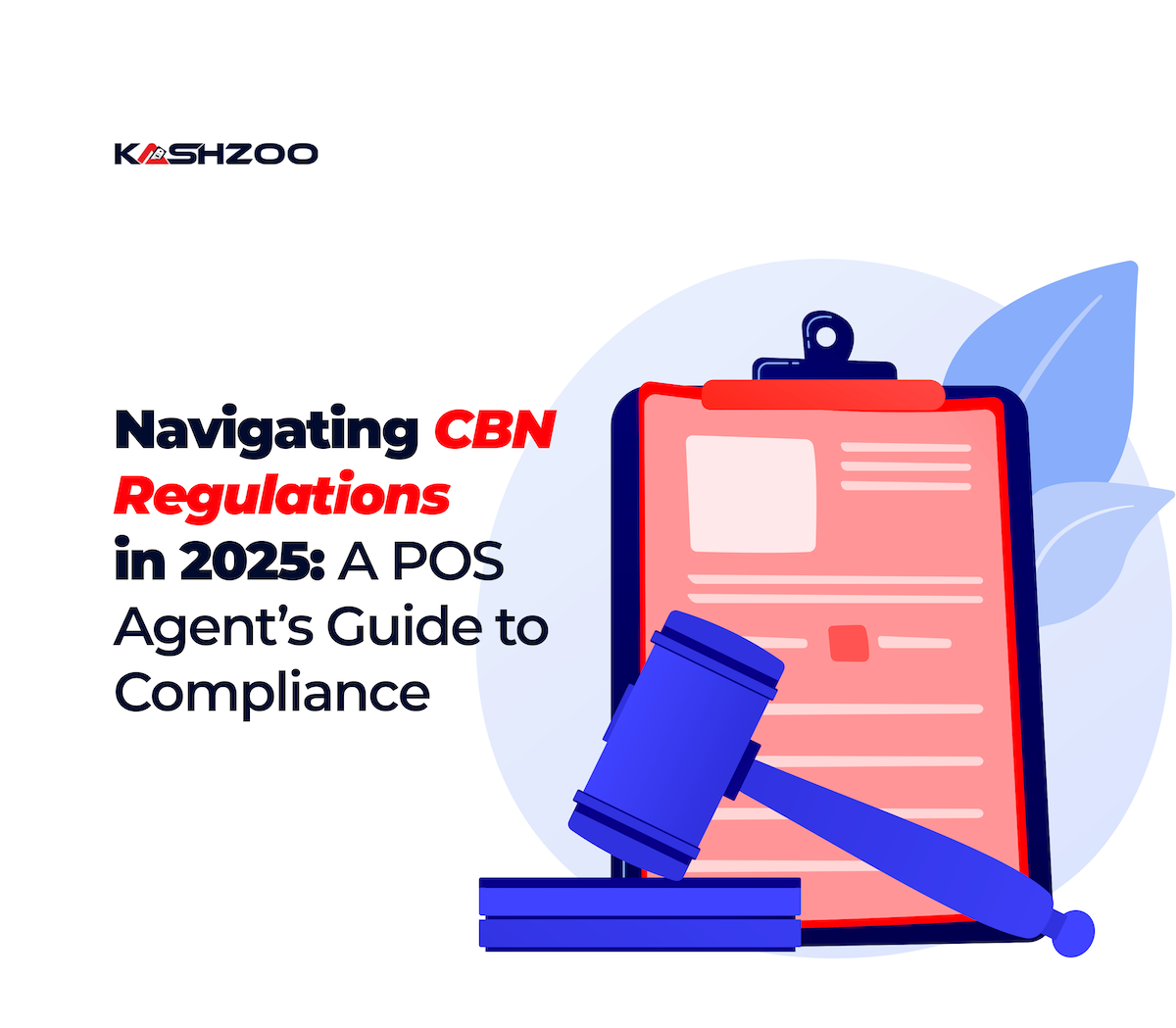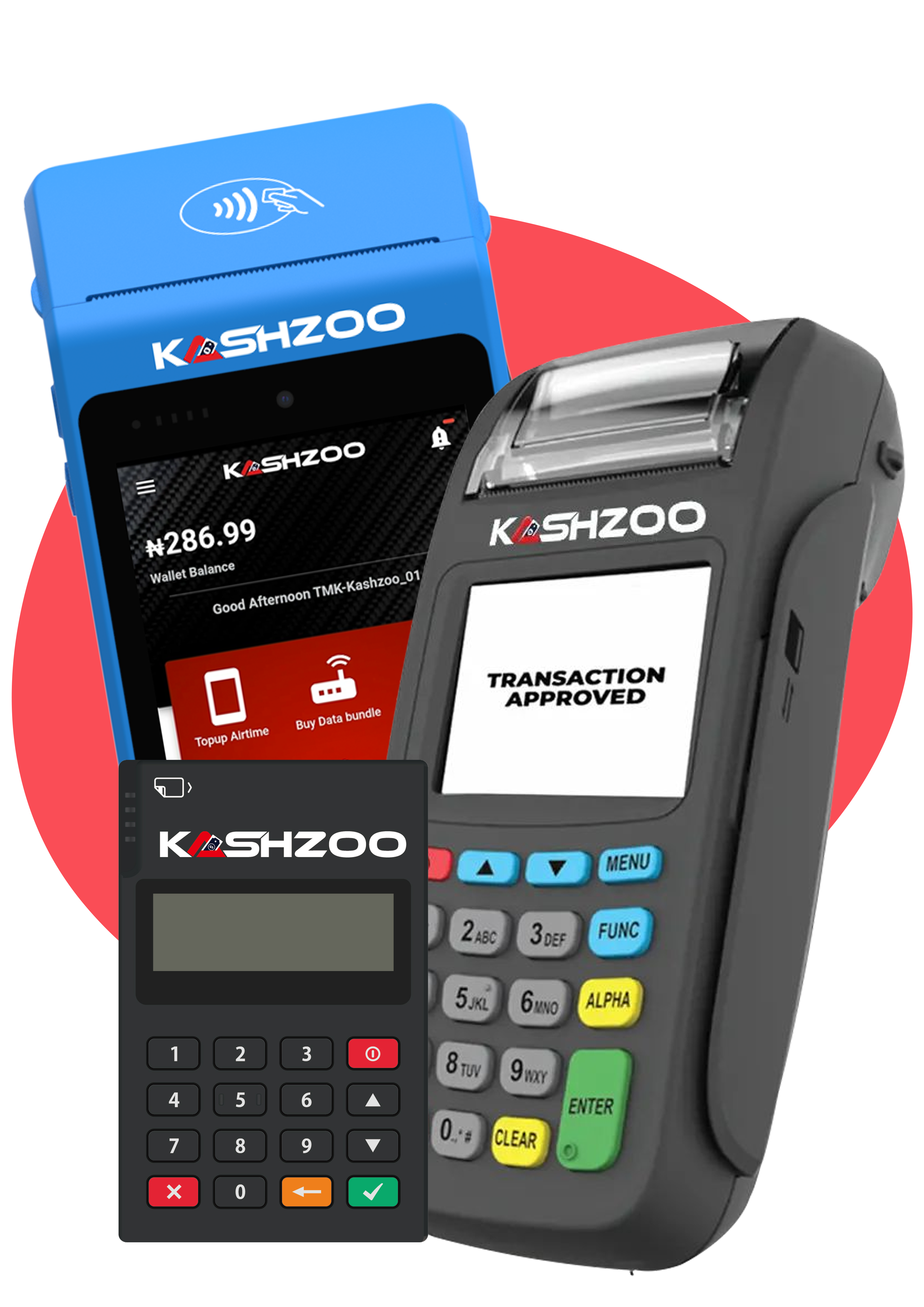As a POS agent in Nigeria, compliance is your license to operate and your edge in a crowded market. Since the inception of agency banking, the Central Bank of Nigeria (CBN) have put in place regulations that show the exact steps to stay safe, avoid fines, and serve customers better. What has changed in 2025, and what is expected of you as a POS agent operating in Nigeria?
This post will answer this question and highlight the benefits of compliance.
Understanding CBN Regulations for Agency Banking
CBN’s agent banking framework sets who can be an agent, what you can do, and how your principal (bank/MMO/super-agent) must supervise you. Agents operate under a contract. The principal takes full responsibility for agent actions, while you follow strict rules on KYC, receipts, transaction limits, record-keeping, and dispute resolution.
Beyond the framework, CBN also regulates electronic payment channels (like POS) and sets chargeback timelines, Payment Terminal Service Provider or Payment Terminal Service Aggregator (PTSP/PTSA) connections, and switching rules. Hence, terminals stay secure, interoperable, and fast to refund when things go wrong.
What does the CBN Regulation say in 2025?
Here are some additions to the CBN regulations in 2025;
Daily withdrawal limits at POS: CBN capped cash-out to protect customers and push cashless use. Below is the limit on withdrawal;
- ₦100,000 maximum withdrawal daily per customer at POS.
- ₦500,000 per customer per week across channels.
- ₦1,200,000 daily cumulative cash-out per agent.
Agents must tag agent transactions with Agent Code 6010. They must keep agent activities separate from merchant sales. They must connect terminals to a PTSA and ensure their principal reports daily activity to NIBSS. Breaches attract sanctions.
BVN/NIN KYC is mandatory: Tiered KYC rules still apply. From December 1, 2023, CBN mandated BVN/NIN linkage.
- Tier-1 accounts or wallets must have BVN or NIN.
- Tier-2 & Tier-3 must have both BVN and NIN.
Banks must revalidate BVN/NIN electronically. Non-linked funded Tier-1 accounts face restrictions. These rules remained in force through 2024 and into 2025.
Real-time Anti Money Laundering (AML) standards are coming: On May 20, 2025, CBN issued an Exposure Draft for baseline standards on automated AML solutions. It pushes the ecosystem toward real-time alerts on high-risk events (e.g., large cash moves, cross-border flows). While it is still a draft, prepare now because banks and MMOs will tighten controls that affect agent monitoring and thresholds.
Faster dispute resolution on POS: Under CBN’s electronic payment rules, refunds for failed POS/Web transactions must be completed within 48 hours. This protects customers and reduces bad blood at the kiosk.
Core agent banking rules that still apply;
- Your principal is fully liable for agent actions tied to banking services.
- Agents must issue durable receipts (paper/SMS/email).
- No direct charging of customers by the agent outside what the contract allows; fees must be set in the principal–agent agreement.
- Clear limits on cash holding, per-transaction ceilings, record-keeping, and AML/CFT checks.
A POS Agent’s Guide to Compliance
- Do KYC at the counter
Ask for BVN/NIN where your principal requires it before high-value cash-out. For unfamiliar or high-risk customers, get a valid ID and a phone number. Document exceptions. This keeps you aligned with bank policies and CBN’s KYC regime.
- Respect the new withdrawal limits
- Cap single-customer daily cash-out at ₦100,000.
- Watch your outlet’s total payouts so you don’t cross ₦1.2m/day.
- If a customer asks for more, split across days or direct them to their bank branch/ATM per policy.
- Set up your terminal the right way
Ensure terminals route through a CBN-licensed PTSP and are connected to a PTSA. Make sure Agent Code 6010 is configured for agent transactions, not merchant sales. Keep terminals card-agnostic and updated. Your principal or PTSP should handle updates.
- Keep agent banking separate from shop sales
If you have an existing business, don’t mix your retail sales with agent float. Use your designated float account only for agent work. Your principal monitors these accounts to catch misuse.
- Issue receipts and keep records
Always print or send SMS receipts for every transaction. Maintain a daily log (paper or app). If a dispute happens, you will resolve it quickly.
- Handle failed transactions by the book
If a customer is debited but you didn’t receive value, raise a dispute immediately through your principal. Track it and push for resolution within 48 hours. Update the customer; don’t keep them in the dark.
- Watch AML red flags
Unusual repeat withdrawals just under limits may mean a scam. Also, watch out for third-party withdrawals with weak ID, or pressure to bypass BVN/NIN rules, should be reported to your principal. Also, as banks implement real-time AML alerts in line with CBN’s draft standards, expect tighter monitoring.
- Stick to your contract on fees
Display your approved service charges in front of your shop. Do not be tempted to add “extra” fees outside your agreement because it can cost you your agency status.
- Work with compliant partners
Choose principals and PTSPs like Kashzoo that are licensed, responsive, and transparent. If you can’t confirm that your provider meets CBN reporting to NIBSS and supports quick dispute resolution, do not use them.
Compliance Benefits
- Zero wahala with regulators: You avoid penalties and surprise audits. Your business stays open.
- Faster customer refunds: 48-hour POS/Web refund timelines reduce misunderstanding and build loyalty.
- Stronger fraud defence: KYC discipline and real-time monitoring from your principal keep dirty money away from your shop.
- Trust and repeat business: Clear pricing, receipts, and clean records make you the reliable agent on the street.
Our Take
CBN wants a safe, cash-lite system. That means strict KYC, clear limits, fast refunds, and tighter AML. If you are an agent, you should respect the ₦100k daily withdrawal per customer, keep your float clean, issue receipts, resolve disputes fast, and follow your contract. Adherence will help you grow with less risk.
Additionally, keep your systems and yourself updated, and align with a compliant principal/PTSP. As you approach the peak period for POS transactions in 2025, be compliant and your business will stay profitable.




What do you think?
It is nice to know your opinion. Leave a comment.